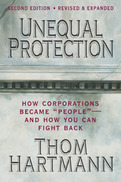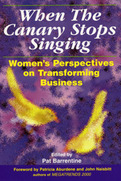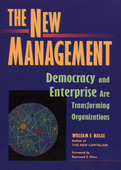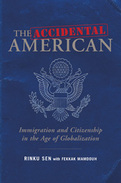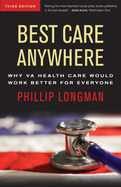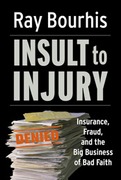2010
Just as canaries once warned miners of unhealthy conditions underground, women in today's corporate marketplace are sounding a caution that our business survival depends on making far-reaching changes in the business environment.
This collection of provocative, timely, and encouraging essays proposes ways to transform the traditional workplace into a more wholesome and balanced environment that honors masculine and feminine traits as equally vital. The fifteen women-entrepreneurs, consultants, and corporate executives-who offer these provocative and practical essays serve as harbingers of essential business transformation. As varied as their backgrounds and perspectives may be, these women see a common need and share a common goal-to create more humane and nurturing workplaces.
Truth and a willingness to risk are benchmarks of the fifteen insightful essays, as is the search for personal and spiritual freedom. The authors speak of individual responsibility and a balance among all the areas of one's life. Work becomes an arena for self-discovery. The controlling "power over" becomes life-nurturing "power to," and steps for creating a full and productive partnership between men and women are defined. In proposing new and more effective ways to succeed in business, When the Canary Stops Singing explodes the myth that feminine and masculine perspectives can't interact in harmony.
Just as canaries once warned miners of unhealthy conditions underground, women in today's corporate marketplace are sounding a caution that our business survival depends on making far-reaching changes in the business environment.
This collection of provocative, timely, and encouraging essays proposes ways to transform the traditional workplace into a more wholesome and balanced environment that honors masculine and feminine traits as equally vital. The fifteen women-entrepreneurs, consultants, and corporate executives-who offer these provocative and practical essays serve as harbingers of essential business transformation. As varied as their backgrounds and perspectives may be, these women see a common need and share a common goal-to create more humane and nurturing workplaces.
Truth and a willingness to risk are benchmarks of the fifteen insightful essays, as is the search for personal and spiritual freedom. The authors speak of individual responsibility and a balance among all the areas of one's life. Work becomes an arena for self-discovery. The controlling "power over" becomes life-nurturing "power to," and steps for creating a full and productive partnership between men and women are defined. In proposing new and more effective ways to succeed in business, When the Canary Stops Singing explodes the myth that feminine and masculine perspectives can't interact in harmony.
1998
o "Serving enterprises" make customers working partners in the creation of value
o "Knowledge entrepreneurs" form teams of self-managed internal enterprises
o "Internal markets" and "Corporate community" harness external forces to drive continuous change
o The power of "inner leadership" unites liberated workers, critical clients, and temporary business partners
o "Intelligent growth" offers strategic advantage that is ecologically benign
Illustrative examples, survey data, trends, anecdotes, and exercises offer original insights into the use of New Management principles. In addition, mini-case studies of MCI, Saturn, The Body Shop, Hewlett-Packard, Johnson & Johnson, Southwest Airlines, Home Depot, IKEA, Wal-Mart and other great companies illustrate vividly how creative managers design and lead organizations in an era of global competition, constant change, and empowered people. The author also analyzes critical issues, such as the nagging old conflict between profit and society, to provide managers a comprehensive, stimulating guide to where their craft is heading.
Halal argues that the transition to a New Management is almost inevitable because it is being driven not by altruism or even good leadership, but by the relentless advance of the Information Revolution. Only small entrepreneurial teams operating from the bottom-up can master today's exploding complexity, and gaining stakeholder support is now essential because a knowledge-based economy has made cooperation a competitive advantage. Rather than fussing over quick fixes, The New Management points the way toward more fundamental solutions to the massive changes that will confront all institutions as the transition to a knowledge society rolls on into the 21st century.
2012
- Tells the remarkable story of how the Department of Veterans Affairs (VA) health-care system transformed itself from a national scandal to a national model
- Explains the multiple advances and innovations that have enabled the VA to provide an unparalleled level of service
- Recommends how to adapt and expand the VA model to the entire country
Expanding health-care coverage to uninsured Americans is a laudable goal, but the problems in our system go much deeper than that. The way that health care is delivered in this country is deeply flawed. Studies consistently show Americans spend more per person on health care than the people in any other country with far poorer outcomes. For example, Costa Ricans spend a fraction of what we do and live a year longer.
But a solution to Americas health-care crisis does exist. Its not a theoretical alternative thats never been implemented. And you dont have to go to a foreign country to see it. Its already up and running, with hospitals and clinics located in every state. Its the VA health-care system, the largest integrated system in the United States.
In Best Care Anywhere, Phillip Longman tells the full story of the VAs amazing turnaround. Once a regular source of nationally reported scandals, the VA system is now hailed for its exceptional safety record, its use of evidence-based medicine, its health promotion and wellness programs, and its unparalleled adoption of electronic medical records and other information technologies. And its the only health-care provider in the United States whose cost per patient has been holding steady as others skyrocket.
The story of how and why the VA became the benchmark for quality medicine in the United States suggests that vast swaths of what we think we know about health, health care, and medical economics are just wrong. Longman suggests ways that this extraordinarily cost-effective model can be adapted so that a VA level of health care could be available to everyone.
New to this edition are an analysis of so-called Obamacare and the Ryan proposal to privatize Medicare. It also describes the results achieved when the VA electronic record system was implemented in West Virginia and Texas and features completely updated statistics and research, including 2011 cancer studies by Harvard University that prove VA cancer patients outlive cancer patients in traditional health care.
2009
- A compelling personal story that exposes how insurance companies get away with denying valid claims, terminating benefits, and destroying people's lives
- UnumProvident, the main company profiled in the book, has 25 million policyholders--over one out of ten people in the United States holds an Unum policy
- Recommends how to reform this corrupt and unjust system
Joan Hangarter bought a disability policy in 1990 to protect her should she ever become seriously ill. She dutifully paid her annual premiums for nearly a decade. But when she became disabled, she and her children found themselves homeless and bankrupt when her insurer--UnumProvident--stopped paying her benefits. With the help of attorneys Ray Bourhis and Alice Wolfson, Hangarter won a landmark $7.7 million jury verdict against Unum.
Through the compelling stories of ordinary people who have been driven to bankruptcy--or worse--when tragedy struck, Bourhis shows how the insurance industry runs roughshod over the very people it is paid to protect. He shows how the industry has become so insulated from accountability that neither lawsuits, punitive damage awards, federal court injunctions, newspaper headlines, nor television exposure can derail their determined efforts to turn a profit at any cost.
Bourhis, a national champion of policyholder rights, walks readers through both Joan Hangarter's heart-wrenching case and the stories of Susan McGregor, Stuart Gluck, John Tedesco, Laurie Hindiyeh, Eugene Molfino, Julie Guyton, Michael Baldwin, Margaret Santana, and numerous other claimants--real people with heart disease, AIDS, spinal injuries, brain damage, Parkinson's disease, and other disabilities whose benefits were cut off just when they needed them most. Bourhis shows how the world's largest disability carrier, UnumProvident, has relied on a host of shady practices--from surveillance to one-sided medical evaluations to policy re-interpretations-to target and terminate benefit payments.
Through these cautionary tales, he shines a spotlight on widespread bad faith double-dealing by insurance providers and details the key regulatory failures that enable these practices to continue unchecked.
- Find out more at www.book-insulttoinjury.com
- A compelling personal story that exposes how insurance companies get away with denying valid claims, terminating benefits, and destroying people's lives
- UnumProvident, the main company profiled in the book, has 25 million policyholders--over one out of ten people in the United States holds an Unum policy
- Recommends how to reform this corrupt and unjust system


